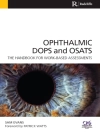The same careful rigour imposed on the design of phase III
randomised controlled trials is not always applied to medical
research in other areas such as trials conducted at earlier stages
of drug development.
With the emphasis that is now placed on evidence-based medicine,
such care and rigour will inevitably impact on these areas with
increasing attention turned to the quality of design.
This title describes what principles can be used to structure
research effectively allowing for the required degree of
accuracy.
Written by two best selling authors, this book includes many
examples from medical literature and will be of great value to all
groups conducting studies at the interface of clinical and
laboratory research.
Table des matières
Preface.
Chapter 1. What is Evidence.
Chapter 2. Measurement, Forms and Questionnaires.
Chapter 3. Principles of Study Size Calculation.
Chapter 4. Randomisation.
Chapter 5. Cross-sectional Longitudinal Studies.
Chapter 6. Surveys, Cohort and Case-Control Studies.
Chapter 7. Clinical Trails – General Issues.
Chapter 8. Early Clinical Trials.
Chapter 9. Phase III Trials.
Chapter 10. Diagnosis.
Chapter 11. Prognostic Factor Studies.
References.
Tables.
Index.
A propos de l’auteur
David Machin, Division of Clinical Trials and
Epidemiological Sciences, National Cancer Centre, Singapore and UK
Children’s Cancer Study Group, University of Leicester, UK and
Institute of General Practice and Primary Care, School of
Health and Related Sciences, University of Sheffield, UK
Michael J. Campbell, Medical Statistics Group, Institute
of General Practice and Primary Care, School of Health
and Related Sciences, University of Sheffield, UK












